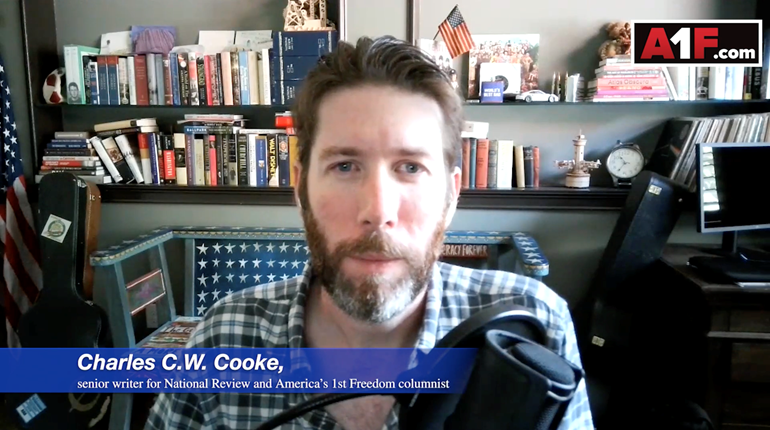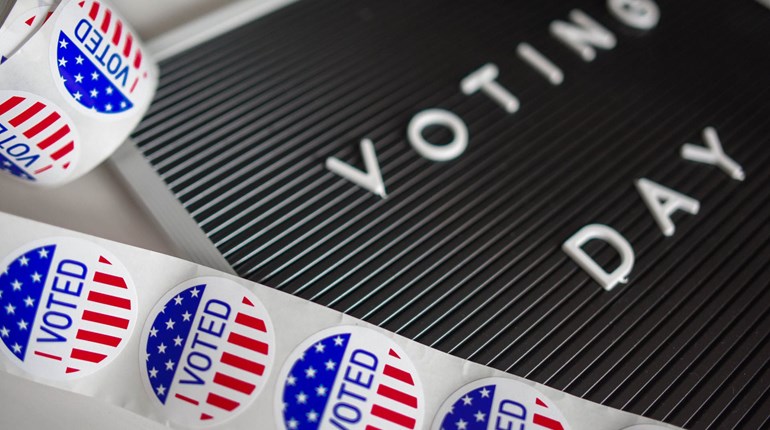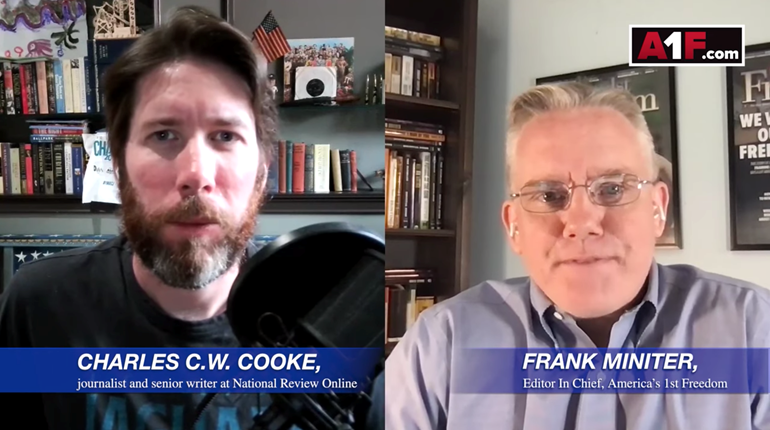
Does the Second Amendment apply to poor Americans? Ask that question to Connecticut Gov. Dannel Malloy and other anti-gun politicians who want to charge exorbitant fees and taxes in order to limit gun ownership and curtail practice of the right to keep and bear arms.
This feature appears in the June ‘17 issue of NRA America’s 1st Freedom, one of the official journals of the National Rifle Association.
A tax is the best form of offense. At least, that seems to be the growing consensus within the weird and desperate enclaves of America’s ever-creative gun control movement. Having seen public opinion swing strongly behind the Second Amendment—and having watched in horror as a majority on the Supreme Court affirmed that English words have meaning—the restrictionists and the tut-tutters have been forced to focus their attentions on an underrated weapon against the right to bear arms—money. If you can’t ban them, bill ’em instead.
The taxman gets around. In 2016, having had its total ban on handguns struck down by a judge, the Northern Marianas Islands swiftly imposed a $1,000 excise tax on all pistol purchases. Explaining his decision, the Islands’ governor was blunt: “I don’t think anyone here in this office wants to see handguns on the street. Unfortunately, however, the only option we have is to make regulations as strict as possible.”
As it turned out, he didn’t have that “option” at all, for as UCLA’s Adam Winkler observed, the measure had represented little more than a “naked attempt to circumvent” the ruling, and was in effect an effort to “tax a constitutional right out of existence.” In consequence, it, too, was nixed by the courts.
Unable to ban guns entirely or restrict them to his friends and the police, the governor of the laughably named “Constitution State” has resolved to do nothing less than reserve a human right for the rich.But not all such ploys have been—or will be. In February of this year, Gov. Dannel Malloy of Connecticut proposed quadrupling the fees that attach to the state’s pistol permits—from $70 to $300 for a permit renewal. The plan, Malloy suggested, would help close the state’s $3.6 billion deficit—by raising $9 million. Challenged by voters, Malloy pointed defensively to neighboring New York City, in which a purchase permit costs $427 and a concealed-carry permit is almost impossible to obtain. By changing Connecticut’s rules, the governor told skeptics, he would be making the two jurisdictions “comparable.”
Indeed, he would. And yet, far from helping his case, the link that Malloy is drawing here serves only to give away the game: namely, that this isn’t about money so much as it’s about control. Tax-happy and bureaucratic as it may be, New York City does not charge exorbitant fees for a pistol permit because it hopes to balance its budget. Rather, New York City charges exorbitant fees for a pistol permit because it doesn’t want anyone to buy a pistol. Or, to put it another way, New York City’s “fees” are not really “fees” at all; they’re “sin taxes.” And you, the law-abiding citizen, are the sinner.
This applies especially if you’re poor. In theory, “sin taxes” apply to everybody equally. If the government puts a $4 surcharge on a pack of cigarettes, that is what smokers are charged whether they be rich, poor or somewhere in the middle. In practice, though, such fees are more easily absorbed by those of financial means. When applied to cigarettes, this is merely unfair. When applied to guns, it is a brazen affront to the Constitution. Nowhere in the Second Amendment is the exercise of the right made contingent on an ability to pay the government. That so many states have made it so is a kick in the face of liberty.
There is absolutely no legitimate case that can be made on behalf of a punitive system of fees. Fees, whatever their level, discriminate solely on the basis of one’s ability to pay, considering no other factors.
Which is to say that, when read in their proper light, Malloy’s plans are almost unimaginably callous. Unable to ban guns entirely or to restrict them to his friends and the police, the governor of the laughably named “Constitution State” has resolved to do nothing less than reserve a human right for the rich. And he calls himself a “progressive”?
How farcical it is to see the very same people who reflexively back expensive gun permits decrying ID cards that cost less than a Belgian beer.To anyone who has been paying attention, the double standard here is galling. For years now, Democrats have complained that attempts to impose voter id laws are inherently outrageous—and on ever-shrinking grounds, too. We have now reached the point at which many states give away voter ids for free, and at which others charge between $5 and $10 for a card. And yet still we hear talk of injustice and Jim Crow and the end of the American way. When it comes to the Second Amendment rather than to the 15th Amendment, however, such fear evaporates upon the instant. How farcical it is to see the very same people who reflexively back expensive gun permits decrying ID cards that cost less than a Belgian beer.
What, one wonders, is the difference? As we have established, the distinction being drawn is not of technical training or of base eligibility. And it can’t be historically based, because there has been just as much exclusion in the history of gun control as in the history of the universal franchise. As a matter of fact, the desire to separate poorer Americans from their right to keep and bear arms has been a common feature of American history, even in recent years. The Sullivan Act, passed in New York in 1911, was linked inextricably to disdain for recent immigrants. Writing about the 1968 Gun Control Act, the anti-gun journalist Robert Sherrill noted acidly that the legislation “was passed not to control guns, but to control blacks.” The law, Sherrill contended, “had nothing to do with the guns used in the assassinations of King and Robert Kennedy” (to which the bill was ostensibly a response), and it seemed reasonable therefore “to assume that [it] was directed at that other threat of the 1960s, more omnipresent than the political assassin—namely, the black rioter.” That the measure specifically targeted so-called “Saturday Night Specials”—a term for inexpensive guns, largely bought by the poor—made Sherrill’s conclusion even more poignant.
It should remain so today. Statistically speaking, high fees and strict permitting hurt immigrants and minorities to a disproportionate degree, as well as limiting the options of citizens who live in the sort of high-crime, low-income neighborhoods where firearms are most crucial to the law-abiding. Who, one has to ask, do Malloy and Company think they are aiding?
Lest I be misunderstood, I should make it clear that the approach at stake here is appalling regardless of how truthful its practitioners are being. Crisis or no crisis, it will never be appropriate to balance a creaking government spreadsheet on the back of the Bill of Rights. But that the gun controllers are lying and conniving makes their plans considerably worse. For a decade or so now, foes of the Second Amendment have suggested witlessly that the state impose a $5,000 tax “on each bullet.” As an idea, this began life in a comedy routine: “You don’t need no gun control,” Chris Rock joked. “You know what you need? I think all bullets should cost $5,000.” Now, men in suits are taking up that plan. Those of us who live in terminally blue states might wonder where this will end.
Among other things, these initiatives underscore just how important it is to have legislators and judges who will take the Second Amendment seriously. At the state level, the adoption of “permitless” carry would ease the financial burden for thousands of would-be concealed-carriers—both by eliminating application fees and reducing the compliance time that is so valuable to those working multiple jobs. And, at the federal level, Congress would make a good start by removing suppressors from the 1934 National Firearms Act, and thereby eliminating the $200 barrier that sits between the American citizenry and what should be nothing more than a commonplace firearm accessory.
The courts, too, have an important role to play, especially since cynical politicians such as Malloy can be agonizingly slow to back down from their anti-gun schemes, irrespective of how wrongheaded or illegal they are. The recent swearing-in of Supreme Court Justice Neil Gorsuch could play a crucial part in determining if low-income Americans are guaranteed their right to keep and bear arms, or, instead, if they can be priced out of that freedom. The now-stronger court makes it more likely that Malloy—and anyone who harbors similar aims—will have been boxed in by the law.
Which, of course, is exactly why we have a Constitution in the first place.
Charles C.W. Cooke is the editor of National Review Online.

































